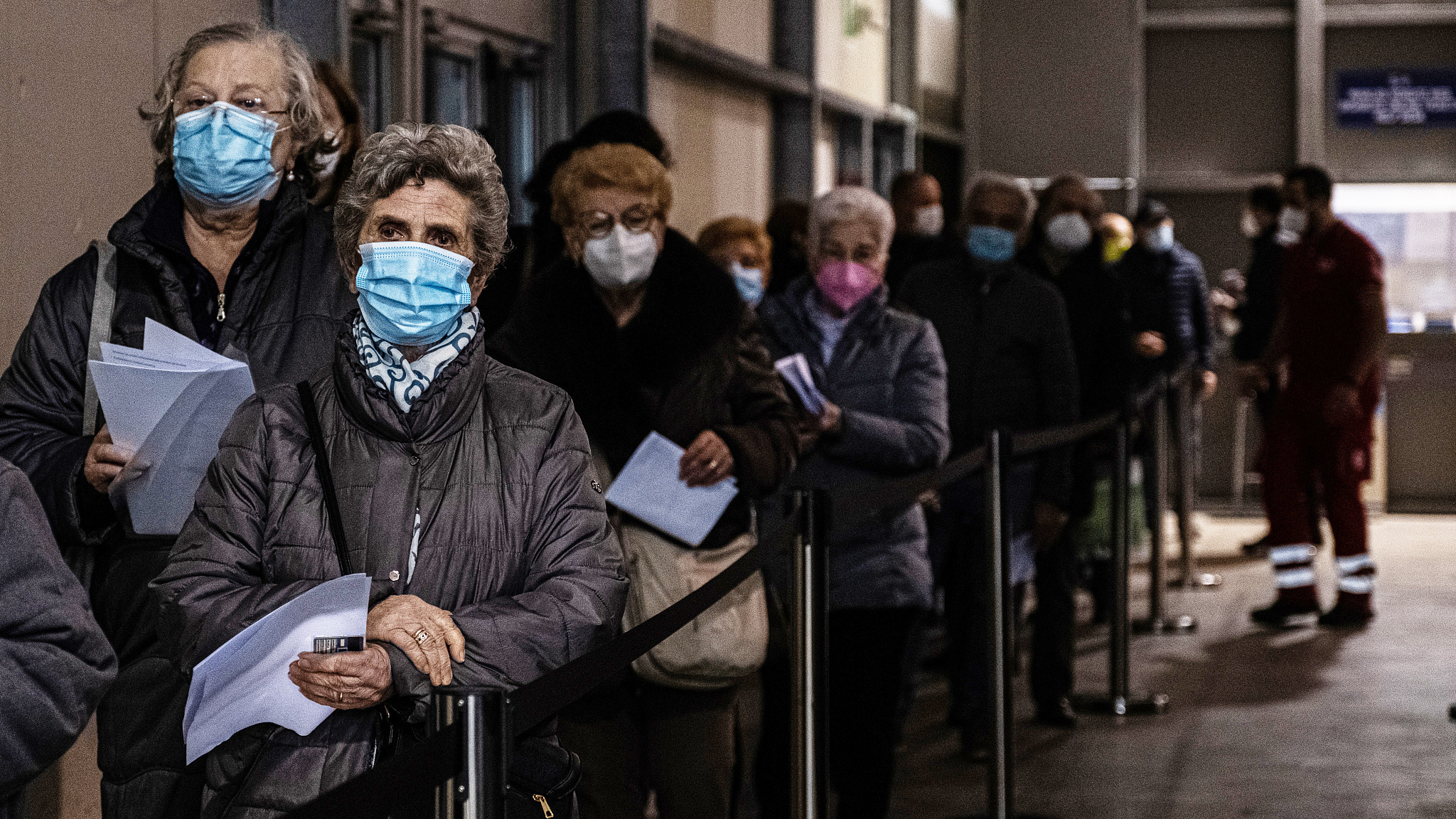
WHO experts stand outside the Huanan seafood market in Wuhan, Hubei Province, central China. /CGTN
WHO experts stand outside the Huanan seafood market in Wuhan, Hubei Province, central China. /CGTN
The release of the report on the global tracing of COVID-19 origins showed "strong and good" cooperation between the World Health Organization (WHO) and China, said Dr. Peter Ben Embarek, a Danish food safety and animal disease scientist who heads the international team, during a briefing on Tuesday.
The size of the report and the amount of material and results, analysis and data in it speak for themselves in terms of how the collaboration with the Chinese colleagues went, Embarek said, adding that the report could not have been completed without China's cooperation.
Read more:
WHO releases report on COVID-19 origin-tracing joint study with China
Acknowledging there are a lot of interests and political pressure from all sides, Embarek said: "I think we were able to create a space for the science, a space for two groups of scientists to work together, we had nothing to hide, so there was no problem working in an open environment, sharing our work and our discussions as we had them."
03:06

He added that the team was never pressed to remove critical elements in the report, adding that this was something all the scientists on the team stood behind and supported.
Regarding the tens of thousands of tests on different types of animals, including wild animals, animals from zoos and domestic animals, Dr. Embarek said all the results are negative, which again shows the difficulty of picking a particular species as a potential intermediate host.
The experts are "looking at the start in and around Wuhan and moving backward, trying to find how they came there and whether they came from other parts of China or elsewhere," Embarek said. "That will depend on further studies and research."
00:44

Admitting a strong suspicion of certain bat species being the host of this virus, he said experts have found closely related strains to the virus "in Southeast Asia," strongly indicating "that is the source of the virus."
But Embarek said they are still working on finding the exact trace-back of the virus.
"There is still a lot of work to do," Embarek said, adding that recommendations laid out in the report are expected to be implemented in the coming weeks and months to get a better understanding of the origin of the virus.
Embarek also thanked residents of Wuhan for their support during the press conference.
"I would like to extend our collective sincere thanks to the population of Wuhan," said Embarek. "They have accepted us, they have facilitated our stay and they have been with us while we were disturbing their daily life with our visit and our work."
The report was written by a joint international team made up of 17 international experts and 17 Chinese experts under a mandate from the World Health Assembly, the decision-making body of the WHO. The United Nations Food and Agriculture Organization participated as an observer.
The team conducted a joint study from January 14 to February 10 in Wuhan City, central China's Hubei Province, following initial online meetings, according to the report.

